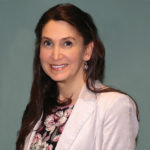
Orthorexia: The Extreme Side of Healthy Eating
It may be possible to take a healthy diet too far. How often have you heard the term “clean eating?” Possibly daily, or multiple times a day through social media or other outlets, which claim that you must eat this way in order to prevent toxins from entering your body or to prevent illness. These same sources may claim that some foods “cure” certain ailments. Nutrition information that is not scientifically based and inaccurate is constantly circulating. Orthorexia is a perfect example of how too much of even something considered beneficial can be detrimental.
According to the National Eating Disorder Association, the term orthorexia was coined in 1997 by Dr. Steven Bratman. He defined orthorexia as “an unhealthy obsession with eating healthy food.” Orthorexia can lead to significant restrictions and the elimination of numerous foods, which in turn can lead to nutrition deficiencies, an unhealthy weight, and an unhealthy relationship with food. While orthorexia is not yet an official diagnosis in the Diagnostic and Statistical Manual of the American Psychiatric Association, it can lead to or be a cover for eating disorders such as anorexia nervosa and it can become a life-threatening problem that requires treatment.
The eating disorder clinicians at EDCare have noticed an increase in the number of clients who present with orthorexia. These clients begin with the goal of eating “clean” or “pure” for health and wellness. Over time, they see a decrease in variety and caloric intake, which can lead to nutritional deficiencies. The client’s health becomes compromised, and their body systems and organs do not get enough energy. “What started out as a way of being healthy has become the very source of causing harm. Nourishing the body requires a well-balanced meal plan that provides a wider variety of all foods in moderation,” said Dr. Sheila Swearngin.
Eating disorders have the highest mortality rate of any psychiatric illness. An estimated 30 million people suffer from an eating disorder. If any of the signs and symptoms listed below sound familiar, please call your nearest eating disorder care provider, such as EDCare, to discuss steps toward developing a healthy relationship with food. ■
You are not alone. Help is just a phone call away. Contact EDCare at 844.845.3922 (toll free) or 913.945.1277 (local). You can also learn more about eating disorders and EDCare services at eatingdisorder.care
Signs and Symptoms of Orthorexia (NEDA)
• Compulsive checking of ingredient lists and nutritional labels.
• An increase in concern about the healthiness of ingredients.
• Cutting out an increasing number of food groups (all sugar, all carbs, all dairy, all meat, all animal products).
• An inability to eat anything but a narrow group of foods that are deemed “healthy” or “pure.”
• Unusual interest in the healthiness of what others are eating.
• Spending hours per day thinking about what food might be served at upcoming events.
• Showing high levels of distress when “safe” or “healthy” foods aren’t available.
• Obsessive following of food and “healthy lifestyle” blogs on Twitter and Instagram.
• Body image concerns may or may not be present.
Source: nationaleatingdisorders.org.
Dr. Sheila Swearngin, program director of EDCare Kansas City, is a licensed psychologist in both Missouri and Kansas and is a Certified Eating Disorder Specialist through the International Association of Eating Disorder Professionals Foundation. She has an MA in clinical psychology and a PhD in counseling psychology from the University of Missouri in Kansas City. She completed her pre-doctoral internship at the University of Kansas, School of Medicine in Wichita and Wichita State University.










